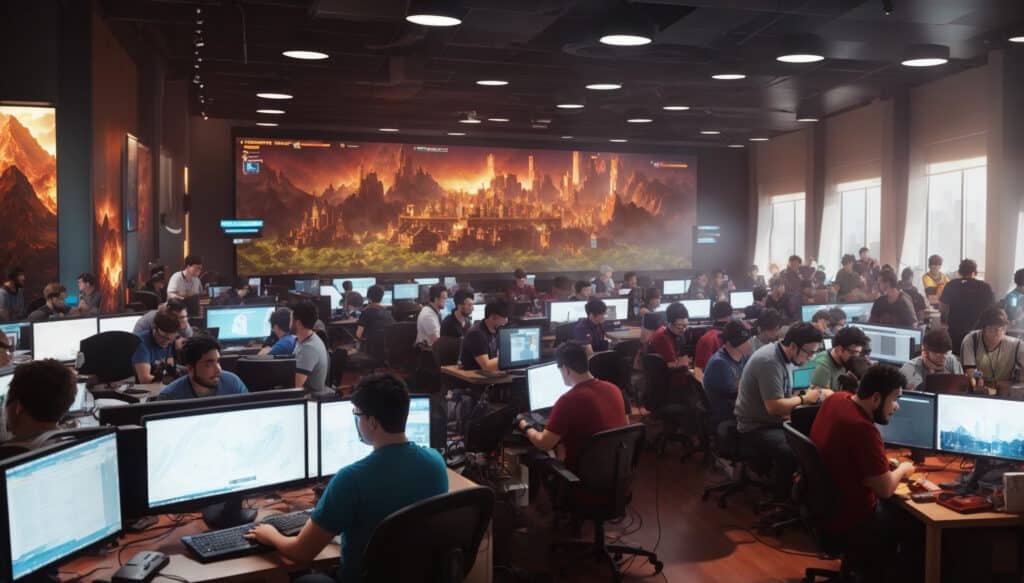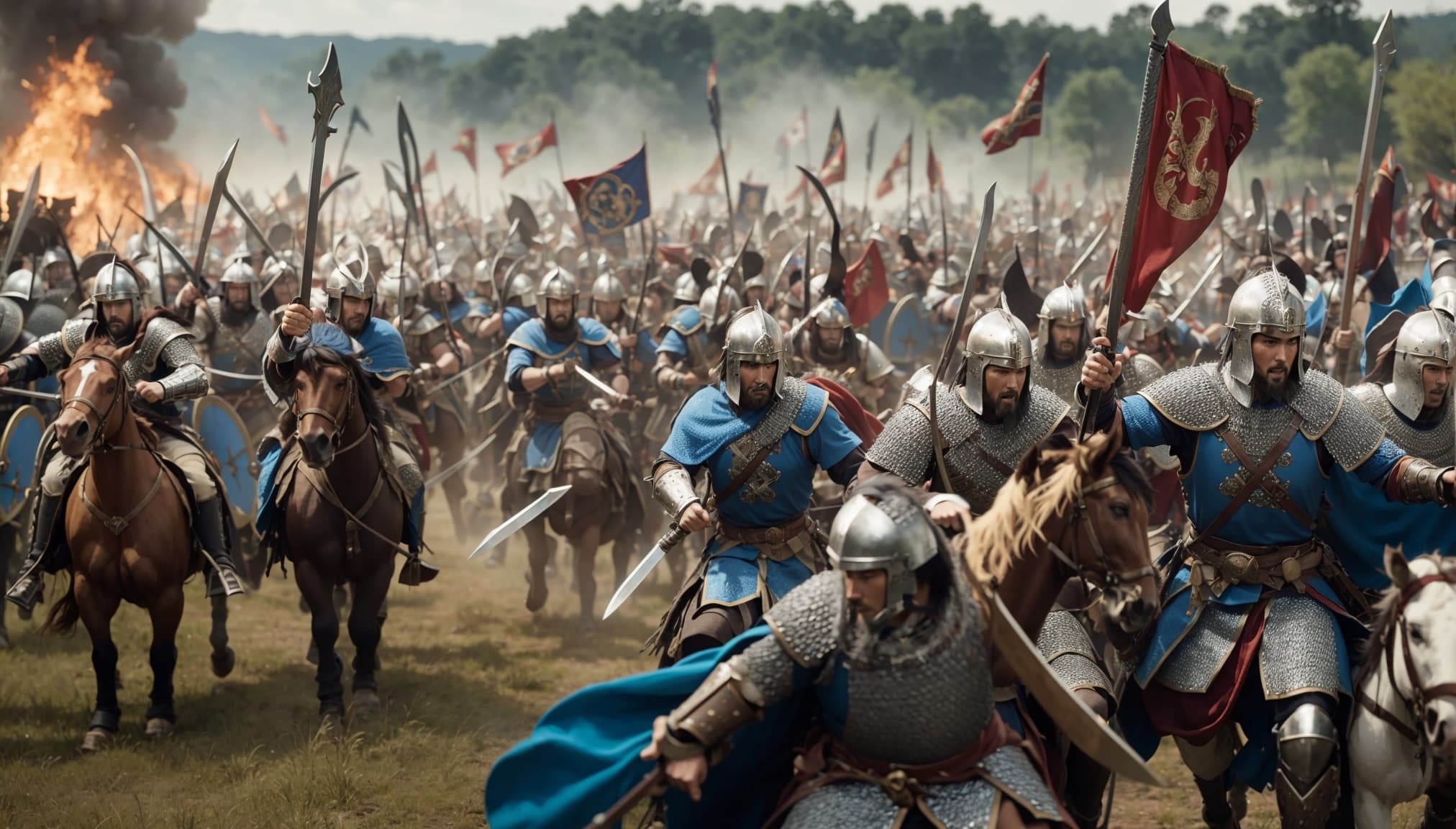In the world of online gaming, Innogames has gradually emerged over the past 15 years as one of the industry’s standout developers of strategy and simulation titles. The Hamburg, Germany based company now employs over 500 people across multiple global offices, with popular games like Forge of Empires boasting over 80 million registered players internationally.
But Innogames’ path to success has not been without hurdles and missteps. Let’s dive deeper into the highs and lows behind this bootstrapped company’s rise from modest beginnings to becoming a major player shaping the future of digital entertainment worldwide.
Humble Hamburg Roots
Innogames traces its origins back to 2007 in Hamburg, Germany – a historic northern port city brimming with maritime trade and cultural diversity. Childhood friends Dr. Eike Klindworth, Michael Zillmer, and Hendrik Klindworth united their shared passion for the nascent opportunities in casual online gaming to launch their startup.
Rather than seeking outside investors, the founders bootstrapped the company themselves through personal savings and bank loans. This allowed creative independence in those early years, but also meant extremely tight budgets and small teams. The company expanded steadily to around 20 employees occupying their first true office by 2009.
Choosing Hamburg provided access to the dense regional talent pool of game developers available in Germany. The energetic spirit of Hamburg as an international trade hub also influenced Innogames’ collaborative culture of empowering teams to take creative risks and have ownership over projects. This scrappy startup mindset later became Innogames’ secret formula for punching above their weight.
Experimenting in the Mid-2000s Casual Games Market
As a young company in the late 2000s, Innogames had the flexibility to rapidly experiment with different games and platform partnerships to see what stuck. Co-founder Eike Klindworth called these “fast following” projects, iterating on proven game concepts rather than attempting to reinvent new genres. This proved an astute strategy for the small startup to establish themselves against bigger rivals in the crowded market.
Early successes came through partnering with emerging social networks like Facebook to distribute titles like Farmers vs Vikings and The West. These games provided valuable opportunities for Innogames to refine their development processes on live products and glean insights into what specific game elements engaged players most before investing in much larger projects.
However, not all of Innogames’ early game experiments succeeded. Over time, a few titles like Wildlife Park 3 failed to find a sufficient audience and were eventually sunsetted. But the founders embraced both the victories and failures as feedback to strengthen future games. They remained agile, not afraid to kill concepts that weren’t resonating in order to iterate until they found formulas that delighted players.

Forge of Empires Strikes Gold
The year 2012 proved a major turning point when Innogames launched Forge of Empires. The browser-based city building strategy game incorporated well-known hooks like researching technologies, recruiting armies, and crucially – progression through historical eras – into one highly polished package.
Forge of Empire’s more casual, welcoming gameplay compared to hardcore PC strategy titles of the era quickly found a broad audience beyond just middle-aged male gamers. Growth rapidly accelerated from just 2 million players in the first year to over 80 million active users across the globe today. On the back of this breakout hit, Innogames’ revenue soared.
But such sudden exponential success also brought major growing pains. Supporting massive demand strained servers, resulting in periods of instability and outages that angered players. Monetizing the huge free player base led to controversies around overly aggressive sales tactics that some deemed unethical.
Despite these troubles, Forge of Empire’s depth, social cooperation, and community ensured longevity, with legions of devoted fans remaining engaged a decade later. The game cemented Innogames as a world-class studio player. And the resulting revenues enabled reinvesting in more talent, resources, and new projects. But replicating such a runaway hit also added pressure for future games to succeed in Forge’s shadow.
Cultivating More Successes
Building on Forge of Empire’s momentum, Innogames significantly ramped up development of new titles while continuing to nurture existing hits with regular content updates and events. Standout successes included giving their previously popular strategy franchise Tribal Wars new life as a vibrant medieval era web experience.
Blending city building fundamentals with Tolkien-esque fantasy, Elvenar won over women gamers often underserved in the hardcore male-dominated strategy genre. Innogames struck gold again with this unconventional approach.
Later, Stronghold Kingdoms represented a bold new frontier, bringing Innogames’ empire creation tools to living room console platforms for the first time. But not every release was a runaway smash. Failed experiments like Shit Happens provided valuable lessons on the risks of straying too far from proven formulas. By mostly iterating on established game types, Innogames ensured overall quality remained high.
Transitioning to the Mobile Games Era
As gaming technology continued evolving rapidly in the 2010s, Innogames pivoted to the explosive mobile market while retaining support for their legacy browser-based fans. Adapting deep persistent worlds like Forge of Empires and Elvenar to the constraints of smartphones and tablets presented numerous design challenges but ultimately grew their total audience reach.
Completely new mobile titles like Vikings: War of Clans also found success, proving Innogames could thrive both on classic PCs and trendy portable devices. While staying true to their core strategy roots, they embraced the different business models and shorter play session lengths expected by an on-the-go audience. This agility kept Innogames competitive across multiple platforms.
Current Innogames Studio Culture
Today with over 500 employees spread globally across multiple offices, Innogames retains much of the close-knit culture of their early startup days but with the added complexity of a major corporation. While leadership strives to keep communication lines open, some employees perceive a disconnect between executives and rank-and-file staff.
Innogames provides attractive compensation and perks to attract and retain top-tier talent. But scaling up so vastly also diluted some cultural hallmarks like the social bonds formed when teams were smaller and more tight-knit. Rapid global expansion introduced some cultural gaps between regional offices as well. These are common growing pains for successful startups transitioning into much larger companies.
Vision for the Future in a Maturing Industry
Looking ahead, Innogames appears well-positioned to retain relevance in a maturing gaming industry, but cannot take continued success for granted. Once innovative competitors like Zynga now pioneer emerging frontiers like blockchain, crypto, and metaverse gaming. To avoid stagnation, Innogames must continue pushing boundaries rather than relying solely on past formulas.
Their deep experience crafting complex gameplay systems provides unique advantages in exploring augmented reality, virtual reality, and real world persistent events. But they also cannot neglect core supporters still engaged with classic hits eagerly awaiting new content. Walking this line between bleeding-edge innovation and sustaining existing franchises will shape Innogames’ future in coming decades.
From scrappy Hamburg startup to today’s global studio, Innogames retains formidable influence in online entertainment. However, in a dynamic industry, their continued dominance depends on how well they balance celebrating their heritage while embracing future trends. Much still remains to be written in this ongoing saga.
Innogames FAQ
Q: When was Innogames founded?
A: Innogames was founded in 2007 by three childhood friends – Dr. Eike Klindworth, Michael Zillmer, and Hendrik Klindworth – in Hamburg, Germany.
Q: How did Innogames get started?
A: The founders bootstrapped the company themselves without outside investors. They started small with around 20 employees and experimented with casual games on platforms like Facebook to establish themselves in the market.
Q: What was Innogames’ first successful game?
A: Their breakout hit was Forge of Empires in 2012, which now has over 80 million registered players worldwide. It cemented them as a top strategy game developer.
Q: How many people work at Innogames today?
A: Innogames has grown to over 500 employees globally across multiple offices in Europe and abroad.
Q: What other popular games has Innogames developed?
A: Major titles include Tribal Wars 2, Elvenar, Vikings: War of Clans and Stronghold Kingdoms. Their games now span both desktop browser and mobile platforms.
Q: How does Innogames generate revenue?
A: Their games are free-to-play, generating revenue from optional virtual purchases and advertising. But they pride themselves on avoiding “pay to win” models.
Q: What is Innogames’ office culture like?
A: They aim to preserve a collaborative startup culture with flat hierarchies. But growing pains like communication gaps have emerged as they expanded.
Q: Are Innogames’ games localized in different languages?
A: Yes, their games allow playing in English, German, French, Spanish and many other languages to appeal to international audiences.
Q: Does Innogames only make strategy games?
A: So far they have focused exclusively on strategy and simulation style games across their titles.
Q: What technology is Innogames currently exploring?
A: They are exploring innovations like VR, blockchain, and real world events to complement their existing online games.
Q: Do Innogames games work on mobile devices?
A: Yes, they have mobile clients for all titles, while retaining desktop support for their original browser-based versions.
![We love PC Games [Explain & Conquer]](https://pcplayerhub.com/wp-content/uploads/cropped-logo-1.png)






